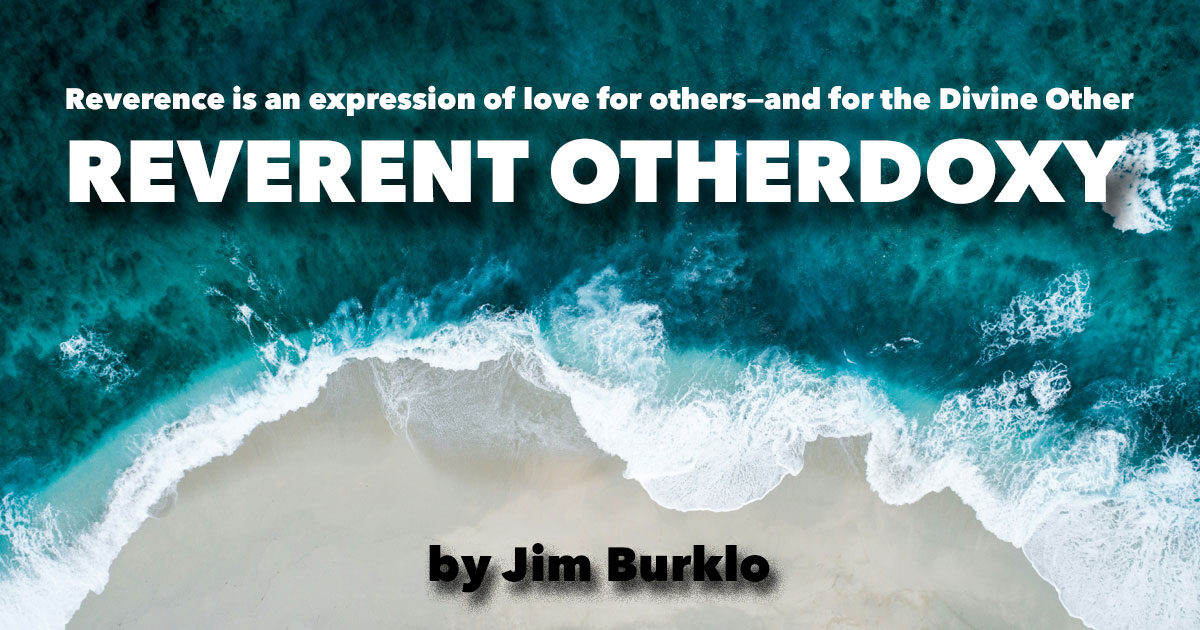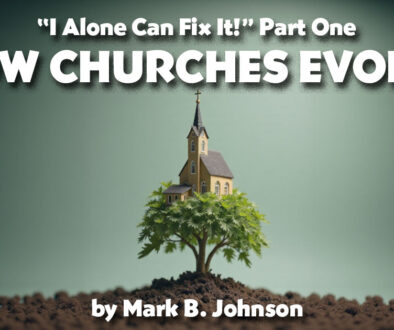Reverent Otherdoxy
by Jim Burklo | 7 May 2025 |
Years ago, I hosted an event at the University of Southern California with Paul Woodruff, a philosopher at the University of Texas, who wrote a book that had a profound influence on me: Reverence: Renewing a Forgotten Virtue.
He said that reverence doesn’t belong to any particular religion, nor is it to be found only in religion. It is deep respect for what is beyond the capacity of human beings to express or fully explain. Reverence is a vaccination against arrogance, tyranny, and violence of word or action. Woodruff’s talk was striking because his own reverence was obvious in his humble manner of speaking. He practiced what he taught.
He said that reverence is a virtue, not a rule or an ethic. Virtues are rooted in feelings. If you cultivate feelings of awe and respect, the power of those feelings will press you to act ethically. Simone Weil, a 20th-century French philosopher and Jewish interpreter of Christianity, wrote that
“we should do only those righteous actions which we cannot stop ourselves from doing, which we are unable not to do, but, through well-directed attention, we should always keep on increasing the number of those which we are unable not to do…. It is only by directing my thoughts toward something better than myself that I am drawn upward by this something.”
The practice of reverence powerfully inclines us to do the right thing, much more than the fear of punishment motivates us to refrain from doing wrong. At its best, our faith cultivates our capacity for it. Worship trains us for it. Contemplative prayer leads us into it.
At its best, the church is a school for reverence, where we practice worshipful awe without containing God in some neat and tidy theological box. In church we are called to cultivate the emotions of wonderment and humility. Reverence for God humbles us out of religious certainty.
I have met few Christians of any theological orientation whose faith is not powered by deep emotion. The feeling of faith makes sense, or nonsense, of religious doctrines.
Orthodoxy vs. “otherdoxy”
But some Christians deride the idea that faith should be based on such feelings, and declare instead that its starting point should be assent to orthodox doctrine. To claim to be orthodox is to assert that you hold the correct doctrine of the faith. The Greek root words are ortho, which can be translated as “straight,” and doxa, which can be translated as “opinion.” By the time of the early Christian church, the word doxa had developed the connotation of “glory.” An opinion of high regard.
But reverence leads us to hold Jesus in much higher regard than any orthodoxy can express. And Christianity has had many different orthodoxies. Jesus said that his Father’s house had many mansions, many rooms (John 14:2)—lots of room for creative spiritual expression and practice.
The Christian house is not defined by an outer edifice of fixed, hard doctrine. Rather, it is defined by its inner dining room, where the bread and wine of spiritual communion with the Christ is offered. We’re invited to come in reverence to a table set for all. The Love that is God, as revealed by the words and deeds of Jesus—a man who lived for others—leads to what we might call otherdoxy.
Reverence leads us away from the small “s” self and toward the ultimate Other, the capital “S” divine Self. Reverence is otherdox.
Jesus was an otherdox rabbi. The Pharisees tried to stone Jesus to death for heresy. They colluded and conspired with the Romans to kill him for expressing Judaism in a manner contrary to their dominant paradigm, by declaring love for others —and for the divine Other—to be the supreme law. The reverence of Jesus makes it orthodoxymoronic for any Christian to claim to practice the once-and-for-all correct version of the faith.
I have deep reverence for my grandchildren, in part because I am enchanted by their reverence. Recently I watched my youngest grandson look out a window toward the palm trees and the sand and the sea at the Santa Barbara beach. His eyes were wide. His mouth was hanging open, his sweet cheeks gone slack in deep wonderment. I fell into worshipful silence at his worshipful silence—utterly absorbed by his otherness, and by his absorption in the otherness of what he saw.
Reverence is innate. We are wired for it at birth. May our Christian faith help us return to it when we lose our way, so that it may naturally lead us into humble deeds of kindness and compassion.
 Jim Burklo is an ordained United Church of Christ pastor. In 2022 he retired after 14 years as the Senior Associate Dean of Religious and Spiritual Life at the University of Southern California. He now serves as pastor of the United Church of Christ in Simi Valley, California. He also serves as executive director of Progressive Christians Uniting/ZOE: Progressive Christian Life on Campus, a national network of progressive Christian campus ministry groups. Jim is the author of seven published books on progressive faith: the latest is Tenderly Calling: An Invitation to the Way of Jesus (St Johann Press, 2021). His weekly blog, “Musings,” has a global audience. Jim and his wife, Roberta, live in Ojai, California.
Jim Burklo is an ordained United Church of Christ pastor. In 2022 he retired after 14 years as the Senior Associate Dean of Religious and Spiritual Life at the University of Southern California. He now serves as pastor of the United Church of Christ in Simi Valley, California. He also serves as executive director of Progressive Christians Uniting/ZOE: Progressive Christian Life on Campus, a national network of progressive Christian campus ministry groups. Jim is the author of seven published books on progressive faith: the latest is Tenderly Calling: An Invitation to the Way of Jesus (St Johann Press, 2021). His weekly blog, “Musings,” has a global audience. Jim and his wife, Roberta, live in Ojai, California.
Graphic photo by Shifaaz shamoon on Unsplash




